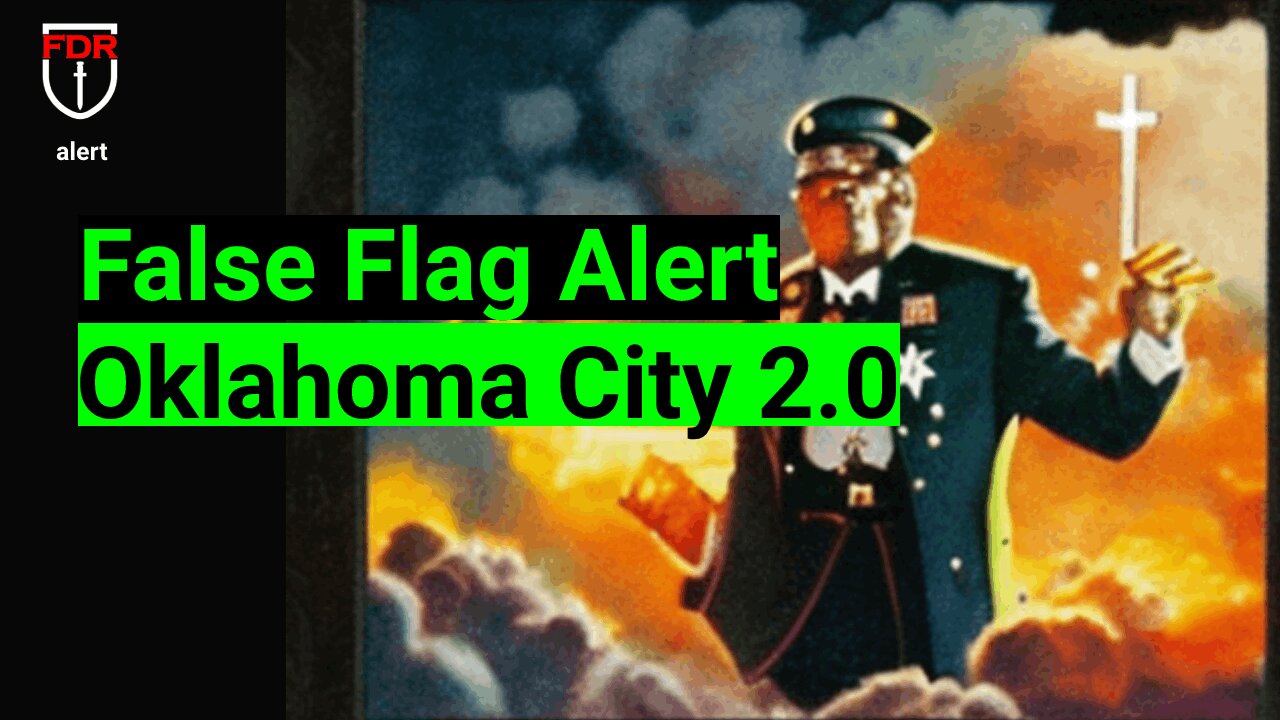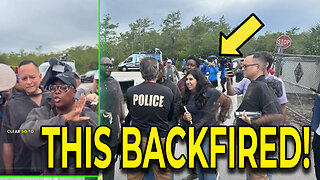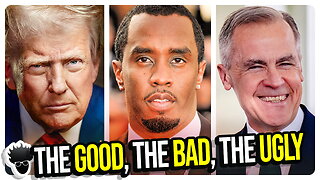Premium Only Content

False Flag Watch
Will this story be used for the classic 3 strategies to gain power?
The phrase "divide and conquer" has historically been used to describe a strategy of gaining and maintaining power or control over a group of people by creating divisions, conflicts, or animosity among them. This strategy involves exploiting existing differences, fostering rivalries, and manipulating individuals or groups to weaken their collective strength and maintain control.
In a societal or political context, divide and conquer tactics may include:
Manipulating ethnic, religious, or cultural differences: Exploiting divisions based on race, religion, nationality, or other cultural factors to create animosity and conflict among different groups within a society.
Fomenting political polarization: Encouraging extreme political ideologies and promoting divisive rhetoric to polarize the population, fragmenting society into opposing factions.
Creating economic disparities: Maintaining or exacerbating economic inequalities, which can lead to social divisions based on wealth, class, or socioeconomic status.
Controlling information and media: Manipulating or controlling the flow of information, spreading misinformation, or utilizing media platforms to promote narratives that reinforce divisions and exploit existing grievances.
2. The phrase "order out of chaos" refers to a strategy or concept that suggests establishing control or creating a new order from a state of chaos or disorder. It implies that by intentionally creating or exacerbating chaotic situations, one can assert control and implement desired changes or policies. The strategy typically involves the following elements:
Disrupting existing systems: Initiating or manipulating circumstances that disrupt established social, political, or economic systems, leading to a state of disorder or chaos.
Creating a perception of crisis: Amplifying or exaggerating existing problems or manufacturing crises to create a sense of urgency and justify the need for decisive action.
Offering a solution: Presenting a solution or a plan to restore order and stability in response to the perceived chaos. This solution often involves granting increased authority or control to a specific entity or group.
Implementing changes: Using the perceived chaos as an opportunity to implement changes or policies that may not have been accepted under normal circumstances. These changes may consolidate power, centralize control, or reshape existing structures.
3. Genocide.. While the specific stages and terminology used to describe them can vary, here is a commonly referenced framework known as the "Eight Stages of Genocide," developed by Gregory Stanton, the President of Genocide Watch:
Classification: Dividing people into different groups based on their perceived differences, such as ethnicity, religion, or nationality. This can involve creating an "us vs. them" mentality.
Symbolization: Assigning symbols, names, or other distinctive marks to the targeted group to differentiate them from the dominant group. This can include language, clothing, or religious symbols.
Dehumanization: Portraying the targeted group as subhuman, inferior, or unworthy of basic human rights and dignity. This is often done through propaganda, hate speech, and degrading stereotypes.
Organization: The genocidal group or government organizes and prepares for the perpetration of the genocide. This may involve training militias, establishing concentration camps, or implementing other means of control.
Polarization: Fostering division and hostility between different groups through propaganda, hate speech, or acts of violence. Extremist ideologies are often promoted, and moderates are marginalized.
Preparation: The perpetrators of genocide plan and prepare for the actual execution of the mass killings. This can include stockpiling weapons, identifying targets, and developing strategies for efficient extermination.
Extermination: The systematic and deliberate mass killing of the targeted group. This stage involves mass executions, forced labor, torture, sexual violence, and other forms of brutal violence intended to eliminate the group.
Denial: After the genocide, the perpetrators often deny their actions, minimize the scale of the atrocities, or attempt to cover up evidence. This can include the distortion of historical records, intimidation of witnesses, or the suppression of dissenting voices.
-
 31:08
31:08
SJWellFire: Final Days Report
15 days ago $1.43 earnedTaking us to WAR with Iran via the Scofield Bible Heresy
1.07K7 -
 3:41:57
3:41:57
Barry Cunningham
9 hours agoPRESIDENT TRUMP SIGNS BIG BEAUTIFUL BILL | INTERVIEWS WITH LEE GREENWOOD | GENERAL MICHAEL FLYNN!
56.3K21 -
 LIVE
LIVE
Eternal_Spartan
9 hours ago4th of July Zelda: Ocarina of Time pt. 1 | USMC Vet | Come Join the Best Chat on Rumble!!!!
93 watching -
 9:25
9:25
MattMorseTV
6 hours ago $0.34 earnedMayorkas is in HOT WATER.
5699 -
 17:14
17:14
T-SPLY
6 hours agoDemocrats Get Shut Down Trying To Enter Alligator Alcatraz Unannounced!
9.09K30 -
 LIVE
LIVE
Spartan
59 minutes agoPro Halo Player | Happy 4th! Ranked on Halo, SWTOR later maybe
31 watching -
 2:08:03
2:08:03
Roseanne Barr
5 hours ago"Neuralink Is The Mark Of The Beast" W/ Tom Althouse | The Roseanne Barr Podcast #105
173K51 -
 1:19:30
1:19:30
vivafrei
11 hours agoHappy 4th of July! Big Beautiful Bill PASSES! Diddy ACQUITTED! Canada's Demise Continues & MORE!
110K83 -
 8:52
8:52
Blackstone Griddles
8 hours agoQuick and Easy Summer Hot Dogs on the Blackstone Griddle
17.3K3 -
 9:35
9:35
Clownfish TV
14 hours agoNeil Druckmann Just QUIT The Last of Us...
12.2K7